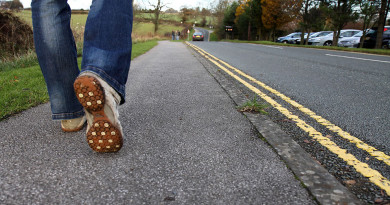How You Could Have Diabetes and Not Know It
Type 2 diabetes is often portrayed as a lifestyle disease; the idea that food, exercise, and other lifestyle choices are what effectively cause this illness. Because of this misconception there are potentially millions of people who have type 2 diabetes and do not know it. They may discount the possibility simply because they do not fall into perceived at risk groups, such as those eating diets high in sugar and fat, or those who do not exercise regularly.
Misconceptions About Type 2 Diabetes
The biggest misconception about type 2 diabetes is that it only affects those with poor diets or low activity lifestyles. This is not the case. While it has been shown time and again that these significantly increase the risk of developing the disease, this does not mean that those who live a healthy lifestyle are not at risk. It simply means that there is a statistically reduced chance of type 2 diabetes developing in a healthy individual, but it does happen.
Often people associate obesity with type 2 diabetes. This is because excessive sugar and fat intake, or a high calorie diet will cause a person to be overweight. While it is true that obesity significantly predisposes someone to developing this disease, a slim person can also develop these issues as genetics are also a factor.
But the misconception that slim healthy people, even those with no family history of the illness, can’t get type 2 diabetes is dangerous. Diabetes significantly increases other health risks such as kidney failure and heart disease. By assuming that a person will not have the disease, this puts them at risk. They will not receive treatment, or make any lifestyle choices to keep the disease under control, and so their diabetes will be a ticking time bomb waiting to go off.
Silent Diabetes
Another issue which compounds the dangers of diabetes in those with healthy lifestyles is that it can often be symptomless. If you don’t realise you have diabetes then you won’t necessarily take the right actions to treat the condition. Furthermore, type 2 diabetes has a range of unusual symptoms. These are not often associated with the disease, but can appear, with sufferers unaware that they indicate possible diabetes. These unusual symptoms include:
- Snoring and sleep Apnea: Snoring is often associated with being overweight, but it can also be an indication of diabetes. A sleep condition called Sleep Apnea, where a person struggles to breath during sleep, causing snoring can often be the culprit. While you can have sleep apnea and not have diabetes, there is a link between the two.
- Dark Patches On Skin: Acanthosis nigricans is a condition where spots or patches of dark skin, often with a velvet texture, can form. This can indicate diabetes, and is the result of high insulin levels.
- Loss of Hearing: Another symptom many won’t associate with type 2 diabetes is hearing loss. High glucose blood levels are thought to damage nerves in the inner ear. If your hearing worsens, then this should be evaluated by a doctor, as it may be because of type 2 diabetes which is otherwise not producing other symptoms.
- Changed Vision: Higher sugar levels can lead to excess fluid in the eyes. This can worsen vision, but in some incidences long standing vision problems can be temporarily fixed because it causes the lens in the eye to swell, changing how the eye focusses light. Any sudden change in vision should be investigated by an optician or doctor.
- Infections: Yeast or thrush infections which are unresponsive when treated may indicate diabetes. This is because diabetes causes an increase in urine as your body attempts to process more sugar. This creates a situation where bacteria can grow more readily.
Always Be Vigilant
By increasing public awareness that diabetes can happen to anyone, even those living healthy lifestyles, this will make people more vigilant. It should be stressed here that we’re not saying unhealthy lifestyles aren’t a problem. With the increasing obesity rates in the US and other countries, it’s no wonder that diabetes incidence is significantly increasing. And so lifestyle is a huge causal factor in diabetes prevalence. It’s just that while healthy people have a much lower risk of developing the disease, it still does happen and when left untreated can cause serious complications.
- Adolescents Living With Diabetes - August 6, 2022
- Diabetes Insipidus Symptoms, Causes, & Prevention - July 26, 2022
- Insulin Shortage May Affect Almost Half of the Diabetics by 2030 - November 24, 2018





I have been absent for a while, but now I remember why I used to love this web site. Thanks , I will try and check back more frequently. How frequently you update your site?